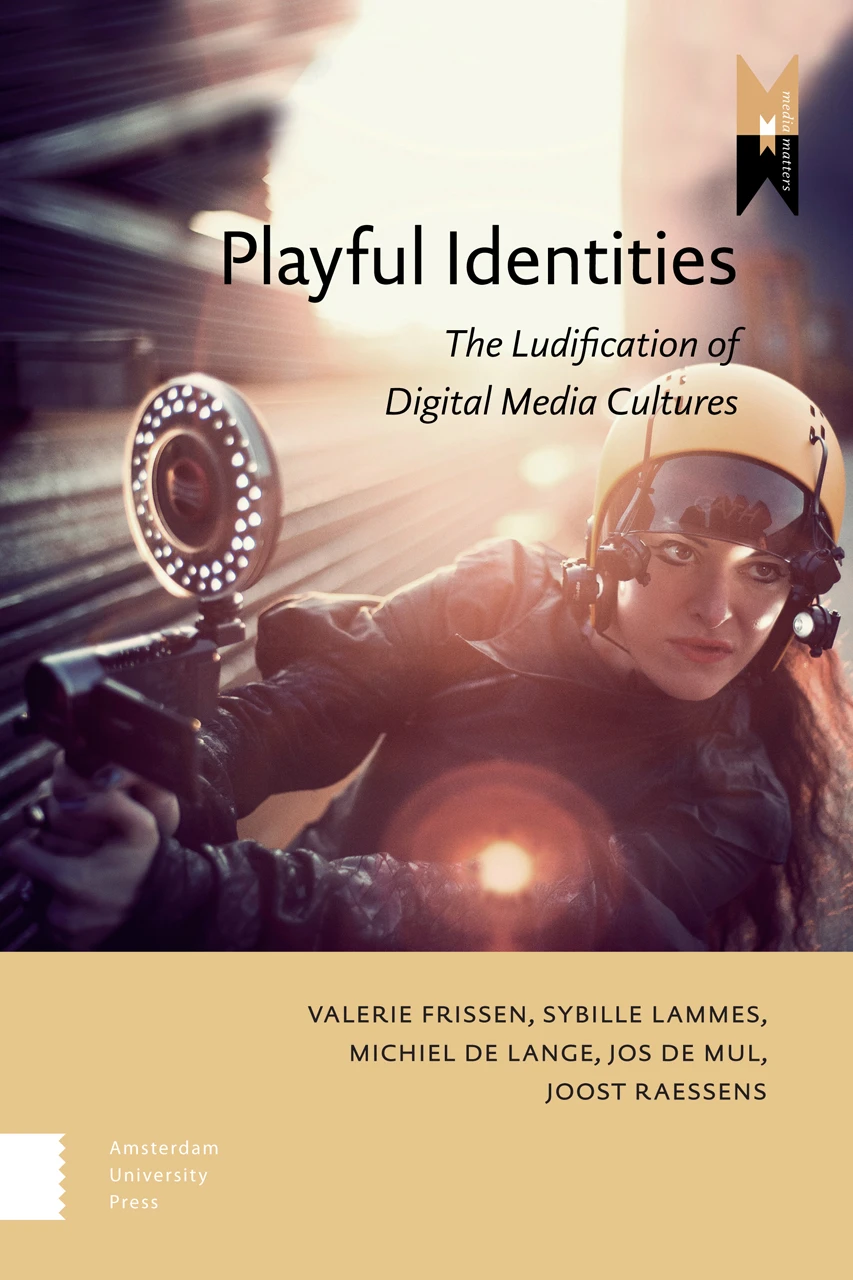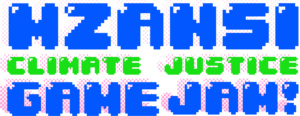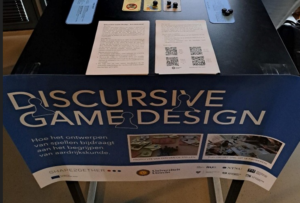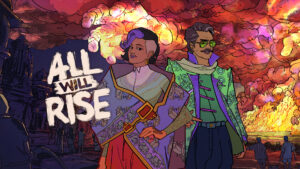
Amsterdam University Press has published the edited volume “Playful Identities: The Ludification of Digital Media Cultures”. See here.
Digital media technologies increasingly shape how people relate to the world, to other people and to themselves. This prompts questions about present-day mediations of identity. This book explores the notion of play as a heuristic lens to look at changing media practices and identity construction. Playful media culture is analyzed far beyond its apparent manifestation in computer games. The central argument of the book is that play and games nowadays are not only appropriate metaphors to capture post-modern human identities, but also the very means by which people reflexively construct their identity. Playful Identities presents academic research at the intersection of media theory, play and game studies, social sciences and philosophy. The book carves out a cross-disciplinary domain that connects the most recent in- sights from play and game studies, media research, and identity studies.
The book is one of the results of the Research project Playful Identities, that was funded by de Dutch Organization of Scientific Research (NWO), see here. The book is also available as an Open Access publication through http://www.oapen.org.
“Playful Identities is an illuminating study on the increasing complexity of digital playgrounds, ludic media, ludic interfaces and technologies of the self. The book presents a variety of roles and identities such as: players, learners, gamblers, users, fans, role-players, theory crafters, cheaters, and digital savages.” Prof. Dr. Mathias Fuchs, Leuphana University Lüneburg “What a brilliant, refreshing, and positively playful approach to the ludic imperative. In stark opposition to the business world’s cynical application of “gamification” to productivity or even the social do-gooders urger to make games “serious,” these essays reveal and reify play as the essence of human experience. Herein lies access to the truth: the play is the thing. These are the smartest, most articulate, and up-to-date essays on this subject, by the very people creating this field of study” – Douglas Rushkoff, author, Present Shock, Program or Be Programmed, and Playing the Future.
Table of Contents
- “Homo ludens 2.0: Play, media, and identity” Valerie Frissen, Sybille Lammes, Michiel de Lange, Jos de Mul & Joost Raessens
- “Playland: Technology, self, and cultural transformation” Kenneth J. Gergen
- “Spiritual play: Encountering the sacred in World of Warcraft” Stef Aupers
- “Playful computer interaction” Daniel Cermak-Sassenrath
- “Playful identity in game design and open-ended play” Menno Deen, Ben Schouten & Tilde Bekker
- “Breaking reality: Exploring pervasive cheating in Foursquare” René Glas
- “Playing with bits and bytes: The savage mind in the digital age” Valerie Frissen
- “Location-based mobile games: Interfaces to urban spaces” Adriana de Souza e Silva & Jordan Frith
- “The playful use of mobile phones and its link to social cohesion” Rich Ling
- “Digital cartographies as playful practices” Sybille Lammes
- “Ludic identities and the magic circle” Gordon Calleja
- “Play (for) time” Patrick Crogan
- “Playful identity politics: How refugee games affect the player’s
identity” Joost Raessens - “Playing out identities and emotions” Jeroen Jansz
- “Playing with others : The identity paradoxes of the web as social
network” Jeroen Timmermans - “New media, play, and social identities” Leopoldina Fortunati
- “Playing life in the metropolis: Mobile media and identity in
Jakarta” Michiel de Lange - “The conflicts within the casual: The culture and identity of
casual online play” Fran Mäyrä - “Afterplay” Jos de Mul
ISBN: 9789048523030



